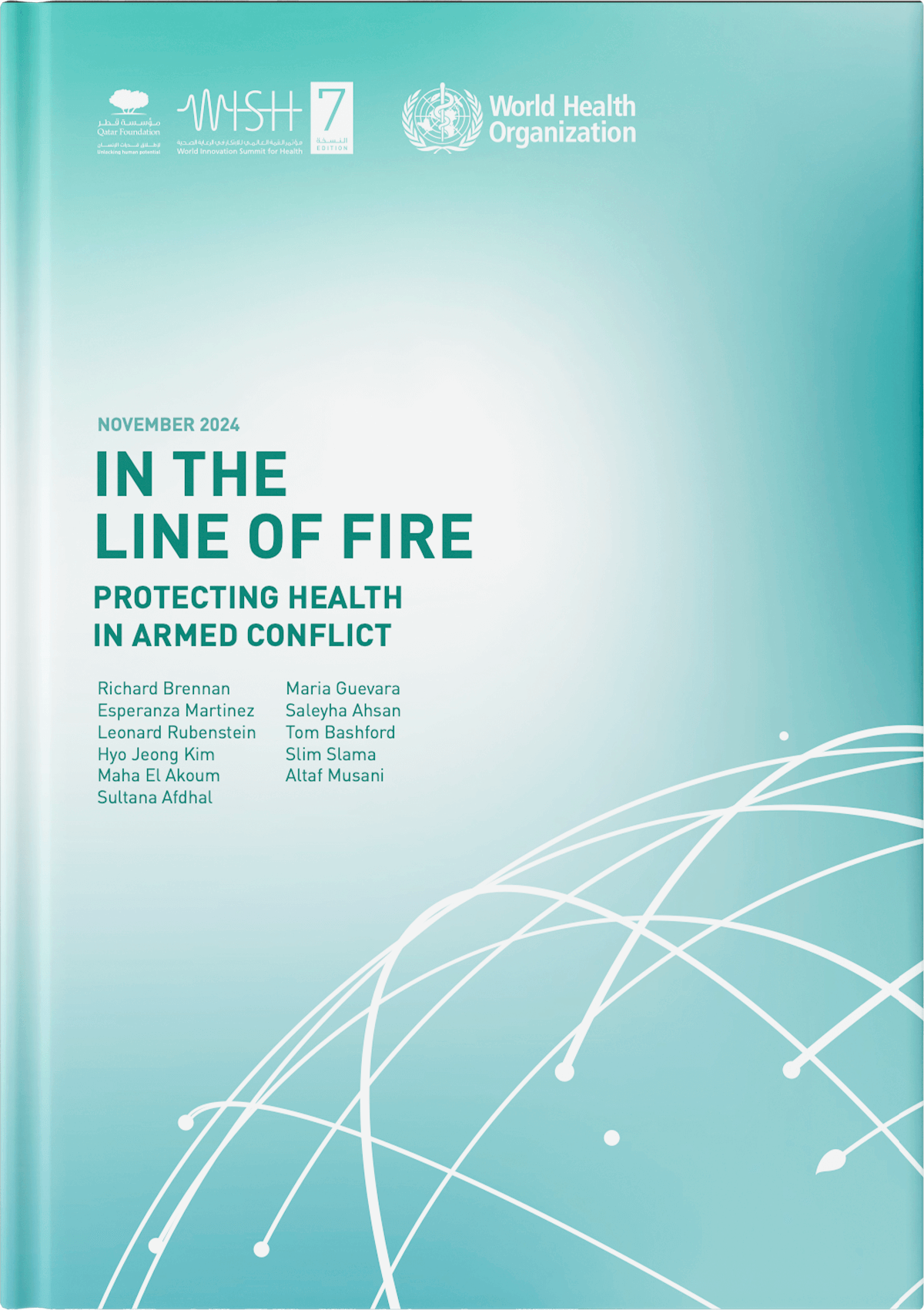In the Line of Fire: Protecting Health in Armed Conflict

The imperative to protect healthcare in conflict settings is enshrined in international humanitarian law, enacted through humanitarian principles such as the distinction between civilians and combatants, the concept of necessity, the proportionality of harm to civilians in relation to military advantage, impartiality and humanity. These principles ensure that medical personnel, facilities and transports are safeguarded, and provide care without discrimination.
Despite these legal protections, there has been an alarming rise in attacks against healthcare, representing grave violations of human rights and international humanitarian law. Hospitals, clinics and ambulances are frequently bombed, looted or significantly hampered from the delivery of essential medical services. Healthcare workers have been assaulted, blocked from administering care and sometimes killed. These assaults severely disrupt vital health services, leaving vulnerable populations without essential care, with catastrophic effects on public health, health workers and healthcare facilities.
The central question this report seeks to address is how do we reset the balance and reaffirm the way forward to uphold the fundamental tenets of IHL, press for greater action to end impunity and foster greater political support to create structures that will ensure the protection of health systems and civilians during war.
Key challenges discussed include:
There is no single actor, government or organization that can overcome these challenges. As a result, this report presents a series of priority recommendations addressed to the full range of stakeholders who have the capacity to prevent and mitigate attacks on health. These recommendations rely on the renewed hope that UN agencies, civil society groups and governments are increasingly beginning to speak more forcefully against the IHL violations occurring in conflicts around the world. We must capitalize on the momentum this has created and push forward with the steps outlined in the report to compel civil society, government and UN agencies to act now to end the suffering of millions around the world.